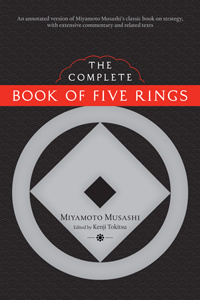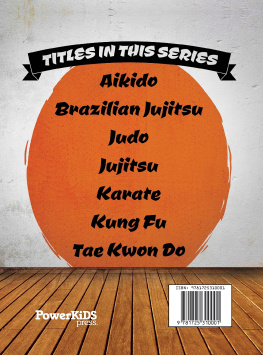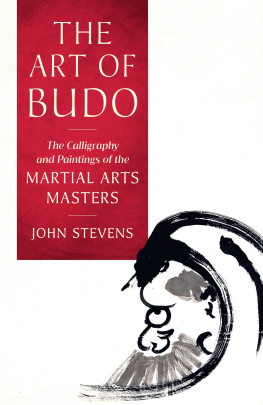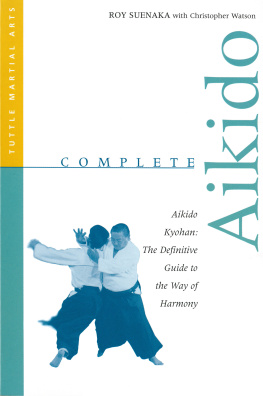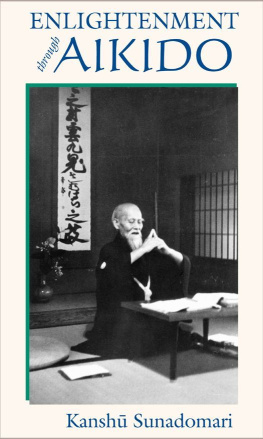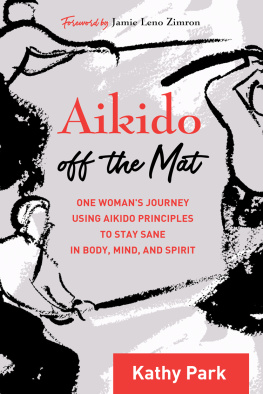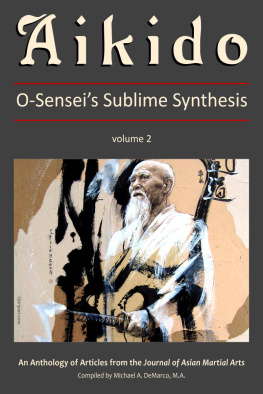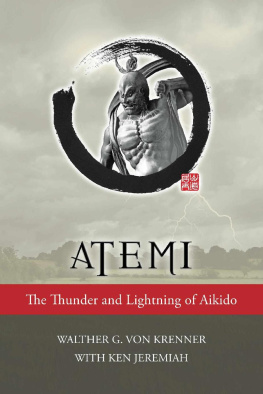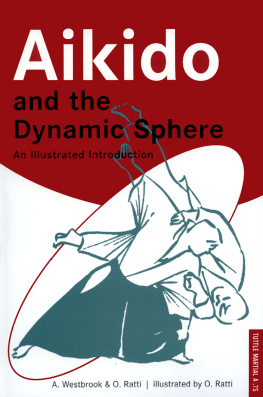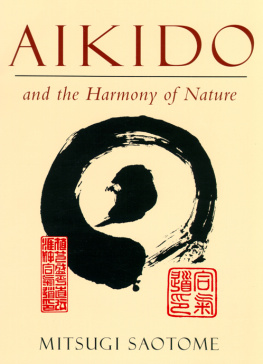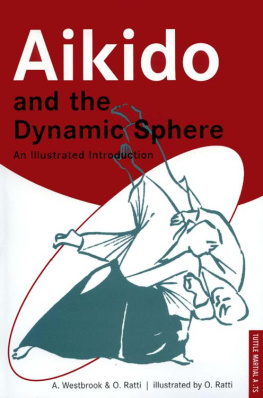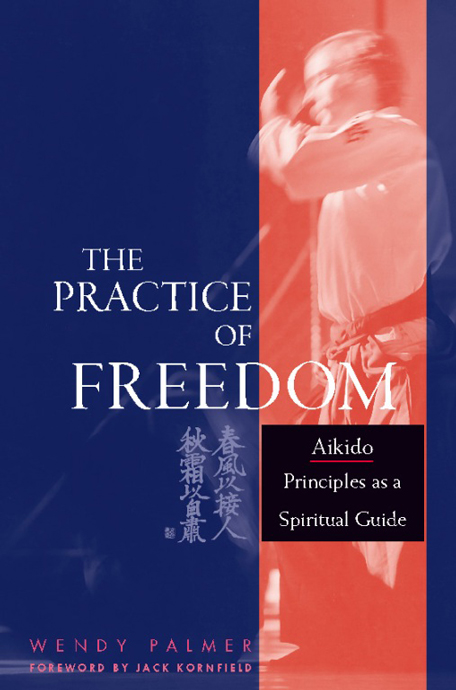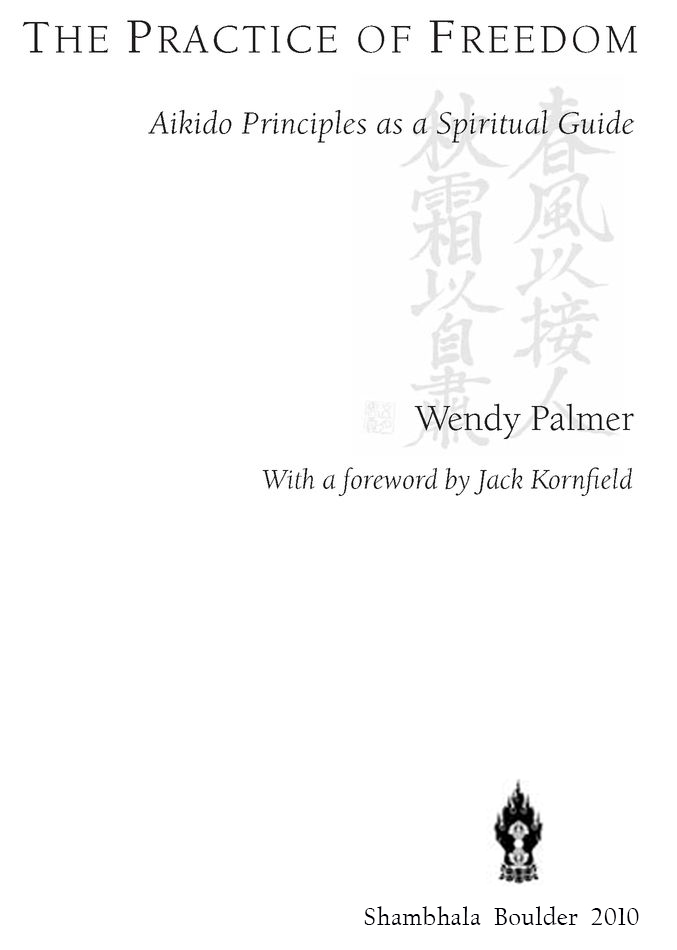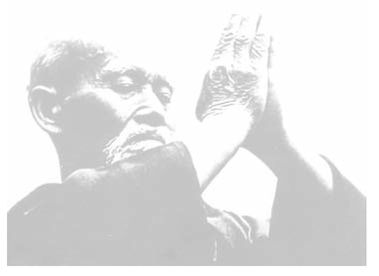Table of Contents
Praise for The Practice of Freedom
Aikido is the martial art for the twenty-first century. It teaches you how to live in harmony with your own body and spirit, with others, and with your environment. In this book, Wendy Palmer speaks of her quest to follow the Way of Harmony in all manner of circumstances, and tells of the many valuable and practical lessons that she has learned. Every person experiences aikido in a different way, and this is an inspiring account by a sincere and dedicated practitioner of this art.
John Stevens, author of The Philosophy of Aikido and The Essence of Aikido: Spiritual Teachings of Morihei Ueshiba
This is a valuable book, not just because of the information that it supplies, but because of the perspective that it offers. Wendy Palmer integrates the timeless wisdom of aikido into the modern art of living well in a fast-paced and complicated world. The Practice of Freedom is a book to be lived, not just read.
Judith Lasater, Ph.D, P.T., author of
Living Your Yoga: Finding the Spiritual in Everyday Life and
Relax and Renew: Restful Yoga for Stressful Times
The Practice of Freedom is a wonderful teaching in embodied awareness. Wendy Palmer has long experience with aikido and Buddhism, and she weaves together their timeless principles of attentiveness, openness, and compassion. This book moves the reader along toward a black belt in living.
Joseph Goldstein, author of Insight Meditation:
The Practice of Freedom and Seeking the Heart of Wisdom:
The Path of Insight Meditation
Wendy Palmers book The Practice of Freedom could be titled The Practice of Virtue. It is a wise and eloquent guide to the good life.
George Leonard, author of Mastery: The Keys to Success and Long-Term Fulfillment and The Way of Aikido: Life Lessons from An American Sensei
Also by Wendy Palmer
Book: The Intuitive Body:
Aikido as a Clairsentient Practice,
rev. ed. (North Atlantic Books, 2000)
Video: The Intuitive Body:
Aikido as a Clairsentient Practice
(Wendy Palmer, 1991)
Dedicated to Morihei Ueshiba
Truly, once the Way is lost,
There comes then virtue;
Virtue lost, comes then compassion;
After that morality;
And when thats lost, theres etiquette,
The husk of all good faith,
The rising point of anarchy.
Lao Tzu, Tao Te Ching
FOREWORD
You hold in your hands a wise book. Wendy Palmer offers us the gracious understandings, dignity, and compassionate spirit that have grown through a lifetime dedicated to her arts. In disciplines as diverse as aikido and meditation, prison work and parenting, she shows us how we can find the wisdom that embraces both tenderness and strength.
Wendy starts honorably, with our difficulties, chaos, and struggle. She points out that our human bodies and immediate relationships are a mirror in which to learn centeredness, responsiveness, and love under pressure. She teaches us how to move from suffering and separation to nonresistance and care, and how to reconnect with the hearts basic goodness. This book is a call to discover these possibilities in ourselves.
When you hear something good in these words, a passage that rings true and inspires your spirit, remember that it is not a call to admire the author, but an invitation to practice and embody this freedom in your own life. May her teachings and your own true practice bring you a life filled with blessings.
Jack Kornfield, author of After the Ecstasy, the Laundry:
How the Heart Grows Wise on the Spiritual Path
Spirit Rock Center, Woodacre, California
November 2001
ACKNOWLEDGMENTS
It has been a great privilege to learn by direct transmission through the lineage of Morihei Ueshiba, the founder of aikido. The notion of practice implies learning and having teachers.
I wish to thank Mitsugi Saotome Shihan for his patience, for his generosity, and for modeling power without force. His teachings are a source of strength and inspiration.
My thanks to Hiroshi Ikeda Sensei, who has taught me about friendship, loyalty, and the power of my own focused attention.
I am deeply grateful to Kevin Choate, who has helped me to open my heart, and to Nicola Geiger, for modeling joy, courage, and endurance.
George Leonards friendship is a great gift in my life. His energy, enthusiasm, and appreciation for all our endeavors are teachings that continue to inspire me.
I am blessed to have the love and support of my children, Tiphani and Django, who, through their very presence, help me to remember how fortunate I am.
Glen Ricafrente was the first person to lend his expertise to the work of shaping this book into a clear and cohesive form.
Sylvia Partridge helped me to open my lens of perception as she kept asking me, What do you mean by that?
Sandy Sedgwick typed many pages of my handwritten notes into the computer with great love.
Jack Kornfields friendship and generosity in the journey toward publication was a source of light and much needed support. He embodies the spirit of generosity and compassion that he teaches so eloquently.
Phillip Moffitt was always there and lending his time and spirit to this project.
I wish to thank Lucy Rodriguez, Alicia Rodriguez, Olga Garcia, and all the women I encountered at the Federal Correctional Institution in Dublin, California, who triggered my interest in the notion of freedom. My thanks to Tracy Thompson, M.D., who brought me into the prison, for her support and tireless service.
Janet Levine, Sue Bender, Kaz Tanahashi, and Ruth Kissane were ever-present sources of humor, confidence, and renewal.
I deeply appreciate the generous support I received from Joseph Goldstein, Judith Lasater, and John Stevens.
Many thanks go to Katherine L. Kaiser for her time, energy, and attention in copyediting this work, and to Ty Koontz, indexer extraordinaire.
It was exciting to see the design of the book come to life. Thank you, Gopa and Veetam, of Gopa and Ted2, for your creativity and artistic vision.
I am inspired by Mitsugi Saotome Shihans calligraphy and by Jan E. Watsons photograph, which grace the cover and pages of this book.
I am grateful to Ike Lasater and all the forces, seen and unseen, that conspired to bring me together with my publishers, Linda Cogozzo and Donald Moyer. They have guided this process with an amazing combination of precision and support.
And finally, the students in my Conscious Embodiment classes and aikido classes are ultimately the reason this book has been given life. They have shaped my understanding, my questions, and my insights. The list is too long to print here, but you know who you are. Thank you so much for the tremendous influence you have had in my life and on this work.
INTRODUCTION
Budo is love.
Morihei Ueshiba
From the time I was a small child, I struggled with a feeling of being stuck. Although I was too young to comprehend the intellectual view of what life was about, I sensed a darkness behind peoples smiles and gestures. In school everyone seemed to be pretending. We pretended that we were happy, pretended that we were smart: there was no place for my feelings of isolation and confusion. The catalyst for my existential feelings was my mothers illness, multiple sclerosis. She was stuck in a body that could not walk and was losing the ability to move altogether. I could see that in the face of her illness, my father and the doctors felt helpless. This made me angry and resentful. After all, they were the people in power: if they were helpless then how could I, a young girl, move forward into my life with confidence and optimism?


